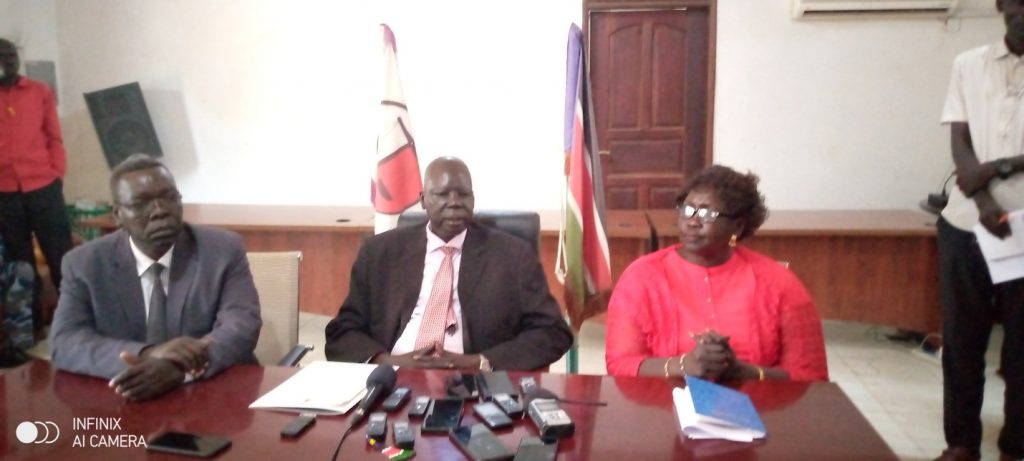
By Taban Henry
The Ministry of Justice and Constitutional Affairs has on Thursday planned to launch the National Public Consultation as a way of establishing the Commission for Truth, Reconciliation and Healing as indicated in the chapter 5 of the Agreement on the Resolution of the Conflict in the Republic of South Sudan (R-ARCSS).
Earlier in September 2018, particularly the Chapter 5 of the Agreement on the Resolution of Conflict in the Republic of South Sudan R-ARCSS provides for the establishment of transitional justice institutions, among them, the Commission for Truth, Reconciliation and Healing.
Speaking in a press conference on Thursday the Minister of Justice and Constitutional Affairs Justice Ruben Madol Arol said that the Ministry of Justice and Constitutional Affairs is set to launch the national consultation citing it as an outcome which will form the bases for the enactment of legislation for the establishment of the Commission of Truth and Reconciliation in accordance with the provision of article 5.1.1 of the R-ARCSS.
“The Transitional Government of National Unity (TGoNU) by resolution on 24th January, 2021, triggered implementation of Chapter 5 and mandated the Ministry of Justice and Constitutional Affairs to establish a technical committee in accordance with the provisions of chapter five article 5.2.1.3 of R-ARCSS to conduct a national consultation which was launched by the First Vice President of the Republic of South Sudan.
Madol invited the Vice Presidents of the Republic, National ministers, State Governors, Diplomatic core, IGAD, RJMEC, AU and the representatives of the United Nations organization in South Sudan to attend the launching at Freedom Hall on the 5th April 2022.
He stated that the formation of the Commission of Truth, Reconciliation and Healing delayed because the technical committee needed to do a lot of preparations as well as working on the methodology to be used in the consultation including the references material so that the message is very clear to the people.
“The people need to know how they want the commission to be like, and all these need time. The other factor is the resources that are required to put in place the mechanism, it is not an easy thing looking into the situation of our economy and the resources available in South Sudan you will expect that covering the whole ten states and three administrative areas will need a lot of logistics,” he added.
Madol hailed the United Nations Development Programme [UNDP] for supporting the initiative since the beginning up to date adding that the government needs to put in their contribution.
“The Commission for Truth, Reconciliation has a bigger mandate in regards to transitional justice and therefore there has been bigger time needed to attend to the other aspects of transitional justice,” he mentioned.



